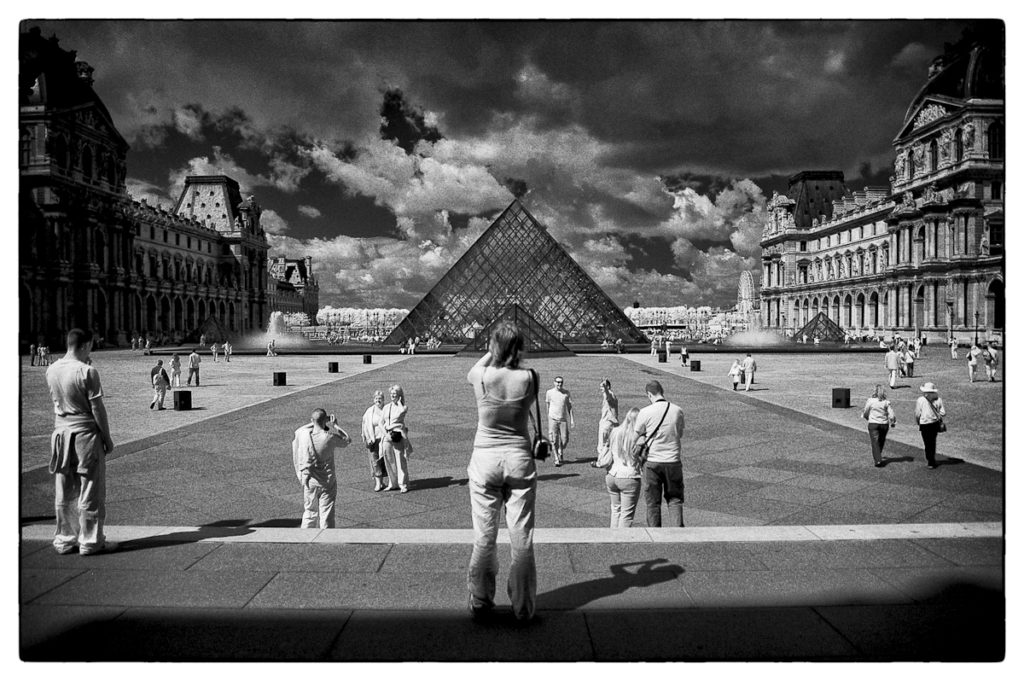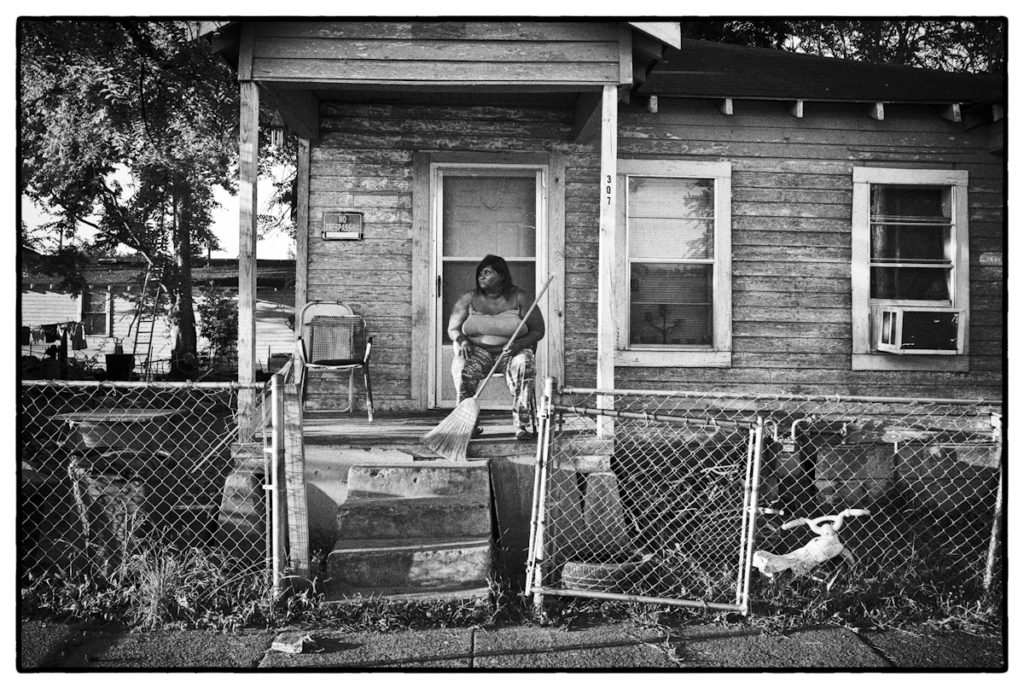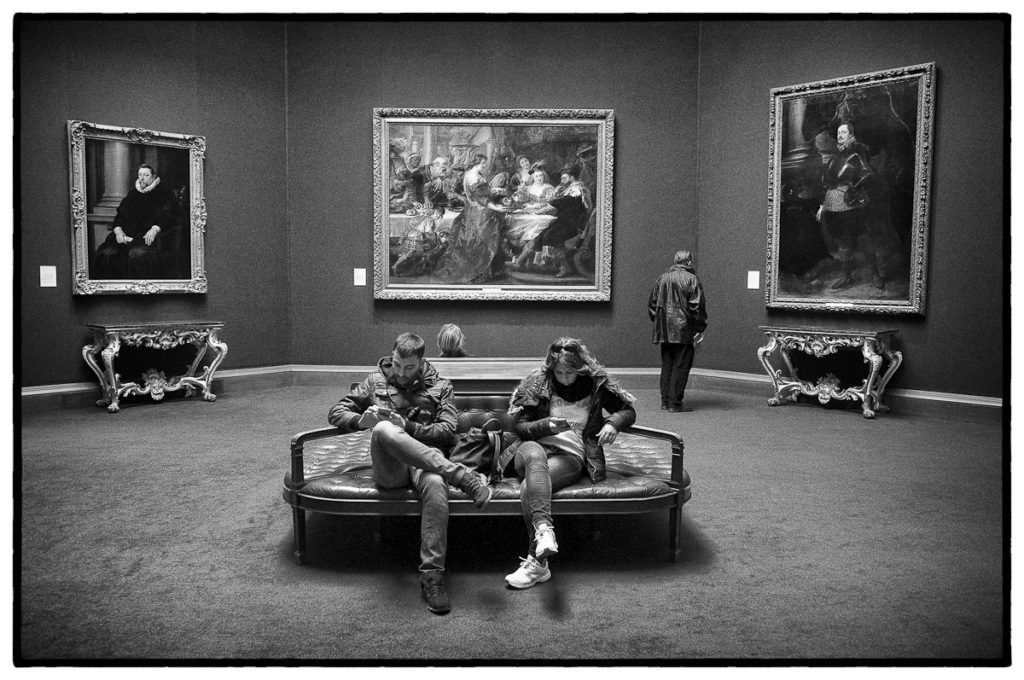This Photo Might be Illegal
Long ago, before your phone was also your camera, it was a first-class pain in the ass to shoot street photography in Paris. The French, peculiar people they are, are very particular about the “Droit à l’image” (Right to One’s Image) issue. Frankly, it can be incredibly tiresome dealing with French people who seem to think it’s their business what you do with your camera in a public space. In the States, we’re relatively habituated to people pointing cameras in public spaces. Under American law, if you’re in a public space, you’re fair game. Of course, this hasn’t stopped freedom loving Americans from bitching at me when I’ve pointed a camera in their general direction, but I’m on firm legal ground when I’ve told them to go pack sand.
In France, meanwhile, I’ve had people threaten to call the police because I was taking pictures of inanimate objects in public. Arrogant people, the French, although I love them dearly in spite of their obvious faults. And God help you if their child could possibly be somewhere in the picture – I’ve almost come to blows with aggrieved Parisians about the issue. My standard response is “Yes, call the police. Let’s talk to them about it” at which point they’d cut and run after a few choice words, or, if that didn’t work, I’d suggest they engage in an anatomically impossible sex act and then ignore them, which seemed to either force the encounter to an unpleasant conclusion or, in rare instances, send it nuclear. More on that some other time.
Sitting on Your Front Porch in Mississippi? Fair Game
The gist of Droit à l’image des personnes en France is a simple one. If the subject of the photograph is a person, that person has a right to oppose the use of his image. This right derives from the French civil concept of private life. Essentially, what it means is this: before being able to use the photograph in question, you must ensure that the person photographed does not expect privacy of his personal image and that he does not oppose the publication of this image. Unlike other countries (e.g. The States) this right to one’s image includes images taken in public, including group photography during something like a street demonstration.
The person whose image is at issue can oppose use its use by invoking Art. 9 of the French Civil Code which protects the right of every individual to respect for his/her private life. Contrary to a misconception seemingly prevalent in Paris, it’s not the taking of pictures in public itself that is a violation of the right, but rather the diffusion or publication of photographs where both the context and the person are easily recognizable. Try explaining that to some large French guy currently in your grill, spittle flying, demanding you delete the photo you’ve just taken on that picturesque Parisian Boulevard.
Meanwhile, These People Could Sue the Hell Out of Me
Like most things, the devil is in the details. Any photographer who is content to shoot for his own personal and private use does not violate the law (e.g see: Court of Cassation, Criminal Chamber, October 25, 2011, appeal 11-80.266, “… the taking of photographs without the consent of the persons appearing therein having been made in a public place, the offense provided for by article 226-1, 2 ° of the Penal Code does not apply.” And if you really want to get legalistic, even in France there exists the right to photograph and publish persons of “public interest” without their express permission. As such, if I see Sir Thorsten von Overgaard – obviously a “public figure,” married as he is to Princess Joy – out and about with a gaggle of acolytes taking his street photography seminar, I’m within my rights to take his picture, as authorization is not required of “public figures” given a recognized “right to information”, “right to information” meaning photographs of public personas in engaged in public activities. The suckers following him around, off limits.
Views: 2913




As ever, at least two sides to all things.
I enjoy sneaking the odd shot of people – sneaking is the considered word – but that doesn’t mean that they, too, should feel delighted at being snapped. I certainly wouldn’t enjoy the experience very much, not that it happens, afaik – but in principle. It’s an intrusion, especially when the person is obviously the centre of attention of the photographer. The emotional part of it is quite separate from the legal status. A crowd scene or a demonstration, with people wearing bright safety jackets as currently, well that would seem to negate that right to being left in peace because then other factors come into play, factors such as the subjects intentionally trying to get noticed.
I suppose that one way around the problem is to use a tripod and make oneself very obvious. I suspect that it’s the idea of the quick, rapidly snatched picture that lights the blue paper in people’s minds, giving the impression that something furtive and potentially harmful is going down.
More interesting though, is quite why any of us has that desire to photograph strangers. I began a little gallery in my website called Beautiful Strangers; however, it ground to a halt only partly because of the dearth of such strangers in my neck of the woods. My main problem was my realisation that I was probably trying to rerun my pro days, thus turning myself, in retirement, into one of those discarded toys that just carries on spluttering until the battery dies.
That originally struck me as a bit sad, but then I realised that, for myself at least, people are the only damned things worth the photographic effort: it’s a bit strange to fall in love with a mountain, a waterfall or a tree; I don’t think I’ll be going there.
As for future pretty strangers – well, I seem to be carrying my camera around less and less. Should the two events coincide again, I suppose I’d give in to temptation, like most of us do.
Rob
Politics again Tim, so soon after the last lot… No doubt I am going to be in trouble again… 🙂
The French are a funny lot, they identified the most significant problem that mankind has, and pretty much summed it up in two sentences. Then a few years later they proceeded to choose the 100% wrong path to the solution, well they didn’t quite choose it, it was imposed, by the wrong people.
Weirdly, the English and latterly as a consequence of our history, the north Americans, were furnished with the right framework over 500 years previously… The French forgot.
OK… “The problem” is summed up as the left and the right, and it relates to the 17th century French court. The courtiers who sat on the left of the King believed that something must be done for the poor. Those that sat to his right, thought that nothing could be done for the poor. This was no accident, birds of a feather… etc..
So anyway, this will always be thus, there will always be poor, there will always be rich, and there will always be a big wedge of folk in the middle. The left, who are invariably from the second group, believe that they should rob the lump in the middle to both enrich themselves and to a lesser extent the first group, and they puff their chests and declare that they are splendid clever fellows, whilst denigrating the folk they are robbing as being not worthy, that they are full of hate… etc. etc..
The French understood this, when the rich French barons who had taken over England, rebelled against the French royalty back in France and in England, in the form of King John, and the result was Magna Carta. The pope annulled this within weeks, but it is a treaty, made by two parties and it has to be overridden by the same two parties, this has never happened. The Americans base their constitution on this document and hold it in great reverence. The English upper classes, couldn’t give a stuff about it. The 800th anniversary went virtually unmarked.
Which is a long way round of explaining why there is a difference between taking snaps in France, and taking snaps in England or America.
Under the “Code Napoléon” officially “Code civil des Français”, nothing is legal, unless a specific law has been passed by their legislature. So unless there has been a law written up that says that it is cool for a third party to photograph a person and do what they will with it, it is illegal.
Under Magna Carta, everything is legal and within everyone’s right, unless there is a specific law that says that it is illegal.
It sort of amounts to the same thing, but the latter is much more on the side of ordinary folk than the former, which is a very effective tool of the dictator, in this particular case… Napoleon. Similar codes have been created in other countries and traditions.
All one really needs to know is that the annotated version of the French civil code, amounts to some 3000 pages of type, whereas the US Constitution is 4 pages long. The French have laws which permit practises, where the English and the Americans, have laws built by precedent and then sometimes by legislature that prevent practises.
In England, we have over the last forty years gradually been adopting the amalgamation of this code, along with the other versions that exist in what is now known as the EU. Many thousands of new laws have been imposed without any parliamentary approval or discussion, it is known as the Acquis Communitaire.
We have the weird situation where the majority think that we live in a free country, but the government and their Brussels pedagogues, along with the mainly young folk that have been brainwashed by the state education system, believe that they are living under a civil code that cannot be any other way. Anyone that disagrees, is a xenophobe, racist or populist, or some other spat-out epithet.
Merry Christmas.
I have just learned something, Stephen. Happy Holidays to you as well.
I guess we’ve all seen ’em, togs sticking their camera in people’s faces without so much as a thought on how that effects other’s sensibilities. Alas, now that virtually everyone has some form of device at hand for capturing images it’s has become the norm. Hell, I’ve probably done it myself at times, but have never felt comfortable doing so. If someone was to do the same to me they’d more than likely get a bunch of verbals.
These days I’ll typically ask permission or at least be bloody sure that the subject/subjects are unaware of my indiscretions, or aware and uncaring.. And yes, I know, permission alters the game, but rather that than cause offense. I know, I admit it, I am at times a hypocrite
Sometimes, we togs are our own worst enemies.
I think a kinder way of looking at it than thinking in terms of hypocrisy, is to think of it in terms of situation ethics: do the best you can, within the time and circumstances at your disposal, in pursuit of your goal. If that involves a ball, then I have nothing further to add; my own code switches me off.
Happy New Year to you and V, and keep those Leicas in tune!
🙂
Thanks, Rob, and the same to you, Tim and all the contributors on Leicaphilia.
As Harry Benson said, “Shoot First.”
Yeah, but Benson’s from Glasgow, and that’s training enough.
Seriously, though, shooting snaps of Mr and Mrs Joe Soap is not the same as shooting snaps of people in the news, or politics or showbiz: they have an investment in feeding the media with imagery. Unless you catch ’em stoned or with the wrong person – or both – then they are going to want to let you make them look good. Publicity is oxygen.
An extended family member, then, our Harry. Different rules, different game.
Rob
I don’t know how long this right to privacy in public has been in effect, but it would certainly apply to some classics of French photography: HCB, Brassai, Doisneau. Is their work illegal to show?
Pieter, if I am right… and I think I am… 🙂 The Napoleonic code went live in 1806, which means that HCB’s subjects (in France) would have been well within their rights to either stop him publishing, or demand some form of ransom.
Over the years as Rob points out above, plenty of French celebs have stopped snaps of themselves in compromising situations being made public.
There has been much discussion of this over the years in England, especially when prurient publications have snapped famous folk, royalty with their tits out for instance, or being in the wrong company, and not being able to do a thing about it.
I know what I prefer, if you wish to dance with the devil, you should be prepared to be found out. If the readers are upset, they will stop buying the publication, and if the publishers are cheating/lying, they can and will be sued.
I shoot the street several times a month. I consider it a study in human behavior in an urban environment. I do not ask permission but I am not hiding either. I use primarily a 50mm Lens and usually shoot from 3-6 feet from the subject.
That’s all fine and good, but the legality of your action, as distinct from the punch on the nose, depends on the country where you play the game. Of course, that punch may arrive regardless, whereupon it becomes another legal entertainment if you choose to push it.
Rob